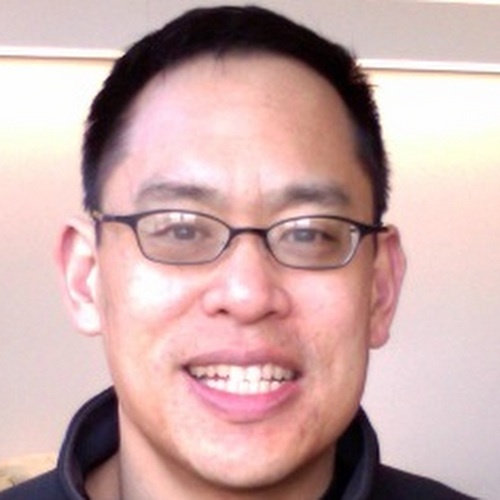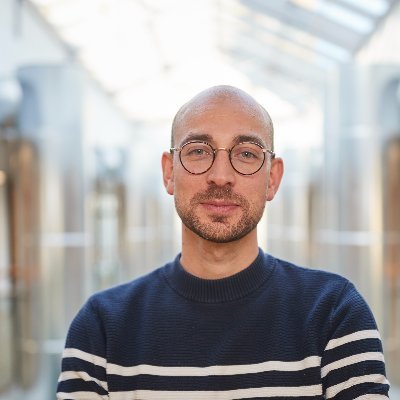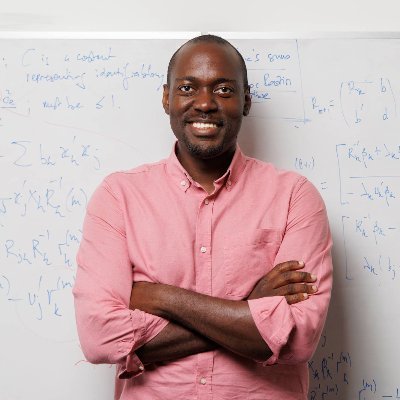
Abdel Abdellaoui
@dr_appie
Followers
10K
Following
15K
Media
796
Statuses
4K
Complex Trait Genetics | Population Genetics | Evolutionary Genetics | @AmsterdamUMC | @UvA_Amsterdam
Amsterdam, The Netherlands
Joined July 2015
In every civilization, people end up sorted into levels of socio-economic status (SES). We explore the history, present, and future of scientific research on the complicated relationship between SES and DNA in @NatureHumBehav 💰🧬🎓 Link: https://t.co/Q5wAbt2B46 Thread below 👇🏽
12
161
548
Check out our new paper on the genetics of educational fields in @NatureGenet Open access link: https://t.co/zDaSyCkfpo
1
29
88
Nice commentary by @fctropf reflecting on our study on not having sex: https://t.co/54StfcyFUQ (for full study, see quoted tweet below)
The largest study on late life virginity, based on > 400k individuals, out now in @PNASNews Open access link: https://t.co/v9FsYzaOqg Shoutout to shared first author @laurawesseldijk ❤️ Thread below 👇🏽
1
3
6
Population-specific polygenic risk scores for people of Han Chinese ancestry Published today in Nature. Three authors from Genomic Prediction: Hsu, Raben, and Widen Dataset is Taiwan Precision Medicine Initiative (N~500k). I believe it is the largest dataset of non-European
6
13
171
This was truly fascinating to read
In every civilization, people end up sorted into levels of socio-economic status (SES). We explore the history, present, and future of scientific research on the complicated relationship between SES and DNA in @NatureHumBehav 💰🧬🎓 Link: https://t.co/Q5wAbt2B46 Thread below 👇🏽
0
1
3
🧬💥 Do the genetics that make you develop a disease also help you survive it? Not much. Our new @NatureGenet including 9 disease and 7 biobanks shows: • Susceptibility variants ≠ survival • PRSs for onset weak at predicting survival • Lifespan PRS predicts survival better
7
34
87
🚨 New preprint out! We reconstructed parental haplotypes in >440k individuals (UK & Estonian biobanks) to estimate assortative mating directly in the parental generation. This reveals intensified assortment in recent generations. 🔗 https://t.co/wnag6TiWWo
5
52
127
We are excited to share GPN-Star, a cost-effective, biologically grounded genomic language modeling framework that achieves state-of-the-art performance across a wide range of variant effect prediction tasks relevant to human genetics. https://t.co/FTm3byYp67 (1/n)
17
160
514
Why do some people never have #sex, even later in life? A new study, conducted by @amsterdamumc and @UQ_News alongside researchers of our Institute, explores this fascinating question. Check out the @PNASNews paper here: https://t.co/em2qUk5irY
@laurawesseldijk #Sexlessness
0
2
7
Here is our new preprint ( https://t.co/dbRy3KLs27). We report heritability estimates for multiple traits using a within-family design in 500,000 sibling pairs of diverse ancestries! Fantastic collaboration with @23andMeResearch! Thanks to their participants and research team.
medrxiv.org
Quantification of the direct effect of genetic variation on human behavioural traits is important for understanding between-individual variation in socio-economic and health outcomes but estimates of...
16
48
337
Excited to share our preprint on PGI portability across ancestries—now on bioRxiv. With co-authors @AysuOkbay, @patrickaturley, @AlexTISYoung, @Dan_J_Benjamin. Preprint: https://t.co/FhNDxY55CC Thread below for details.
biorxiv.org
Polygenic indexes (PGIs) trained on samples of European genetic ancestries often lose substantial predictive power when applied to non-European ancestries. While this portability problem is well...
2
9
39
@laurawesseldijk Brendan Zietsch wrote a good and accessible summary of our paper here:
theconversation.com
A study of more than 400,000 people found 1% had never had sex – which was linked to a range of genetic, environmental and other factors.
3
3
5
Many thanks to my co–first author @laurawesseldijk (🥰), co–last authors Brendan Zietsch & Karin Verweij, and all other co-authors ❤️ Check out the paper here:
pnas.org
Romantic (typically sexual) relationships are important to personal, physical, mental, social, and economic well-being, and to human evolution. Yet...
3
4
32
Sexlessness is relevant to wellbeing and evolution. But it’s also a complex behavioral trait: its genetic associations trace back to many other traits and environments. The associations we find are correlational and likely to be culture-specific, so more research is needed.
1
1
42
Genes linked to sexlessness overlap with genes associated with: - Higher education & IQ - Less substance use - Higher autism & anorexia risk - Lower ADHD, anxiety, depression & PTSD risk
7
18
153
Thousands of genetic variants with very tiny effects together explain ~15% of variation. The genetic correlation between men and women is .56. Ancient DNA shows an allele significantly associated with sexlessness declined over 12,000 years, consistent with natural selection.
2
5
59
Where you live matters too. Men in regions with fewer women were more likely to be sexless. Sexlessness was also more common in regions with higher income inequality.
2
6
66
Sexless individuals reported: - More loneliness, nervousness, unhappiness - Fewer close relationships & social connections - Less alcohol & drug use Patterns differed by sex: for men, physical strength, income, and social connection mattered more.
1
10
92
Sex is central to human wellbeing. ~1% of people never have sex. While some people simply don’t want sex, for others, no partner can mean loneliness, lower wellbeing, or even economic disadvantage. No sex is also interesting for genetics as it is an evolutionary “dead end”.
5
2
82
The largest study on late life virginity, based on > 400k individuals, out now in @PNASNews Open access link: https://t.co/v9FsYzaOqg Shoutout to shared first author @laurawesseldijk ❤️ Thread below 👇🏽
21
111
665














